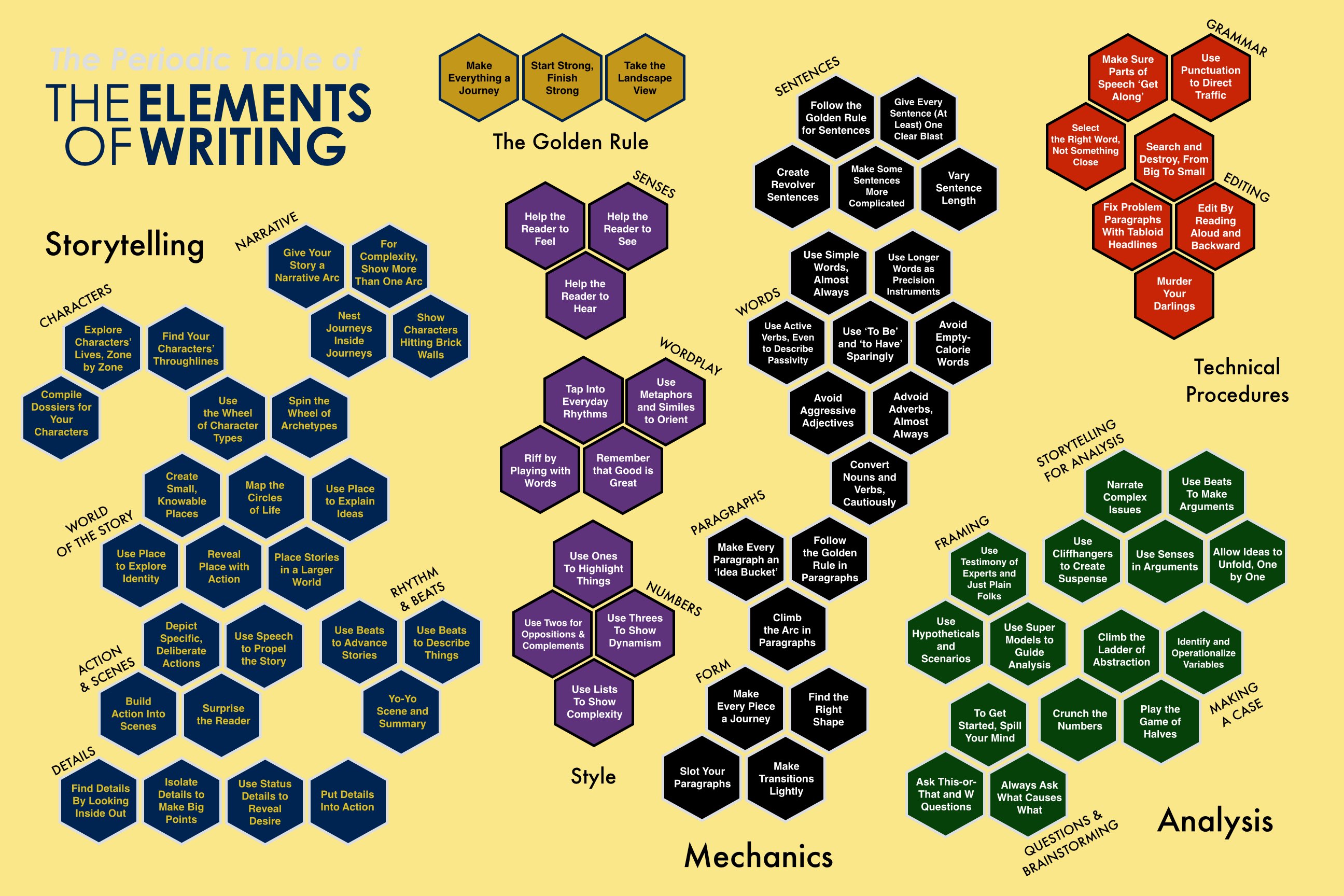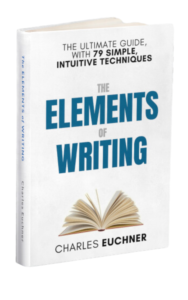IT’S ELEMENTAL
From 79 Simple Skills Comes Mastery
El•e•ment \’e-lə-mənt\ n [ME, fr. AF & L; AF, fr. L elementum] (13c)
1. one of the parts of something that makes it work, or a quality that makes someone or something effective: the heating element of a toaster.
Ex.: Having a second income is an important element for most homebuyers.They had all the elements of a great team.
2. in chemistry and physics, a substance that cannot be reduced to smaller chemical parts and that has an atom different from that of any other substance.
The beauty of any great thing—in nature, in people, in the arts and crafts, in science—lies in how simple basic elements combine in different ways to create something original.
In nature, scientists have identified 118 chemical elements that serve as the basic units of our world. Chemical elements and compounds combine in countless ways to create everything we experience in the world, from the vitamin C in our oranges to the metal in our cars.
We can find basic elements—core building blocks—in all our endeavors. An artist’s composition includes a number of elements, from the form of a composition to the colors used to represent that image. A photograph’s elements include light, shutter speed, and distance. An engine’s elements include cylinders, pistons, valves, rods, crankshafts, and rings. An economy’s elements include producers, commodities, sellers, buyers, money, and prices.
You get the idea. We can reduce everything in life to its basic elements. When we understand the elements, we can deploy them to create something bigger and more complex.
Welcome to The Elements of Writing.
After years of study—and testing our program with audiences all over the U.S.— we have identified 79 distinct elements of writing. Each element represents a simple, intuitive skill. When you master these elements, you can write well at any level, in any field.
The elements are arranged into three main categories:
1. Storytelling[expand title=”(More)”] More than virtually any other activity, storytelling defines what it is to be human. We tell stories to make sense of a dizzying complex world, to connect with others, and to establish a permanent record of human ideas and experiences. Storytelling is innate to us — and interests and excites us more than any other activity — so it offers the easiest way to plunge into the challenges of writing.[/expand]
2. Mechanics[expand title=”(More)”] Once we have mastered storytelling, we move to mechanics. Happily, storytelling makes the mechanics of writing — composing sentences and paragraphs, getting grammar right, editing drafts, and writing with style —easy. Why? Because the structure of all writing mirrors the basic structure of storytelling. With a mastery of storytelling, the abstract challenges of mechanics come easily.[/expand]
3. Analysis[expand title=”(More)”] Finally, we move to analysis. When you think about it, analysis is really just storytelling on a higher plane. Whereas storytelling focuses on particular people, places, and events, analysis looks more broadly at vast numbers of events. A story about theater would focus on one actor, troupe, or production; an analysis of theater would generalize about large groups of these thongs. Storytelling is about “one and only” things; analysis is about “many and varied” phenomena.[/expand]
Mastering these skills in sequence makes learning easier and more whole., But you can pick out any element and learn it, practice it, and instantly improve as a writer.
Never before has there been a comprehensive guide to all of the elements of the craft. That’s we’re so excited to offer our collection of books, online training videos (in January 2015), and seminars and webinars.



